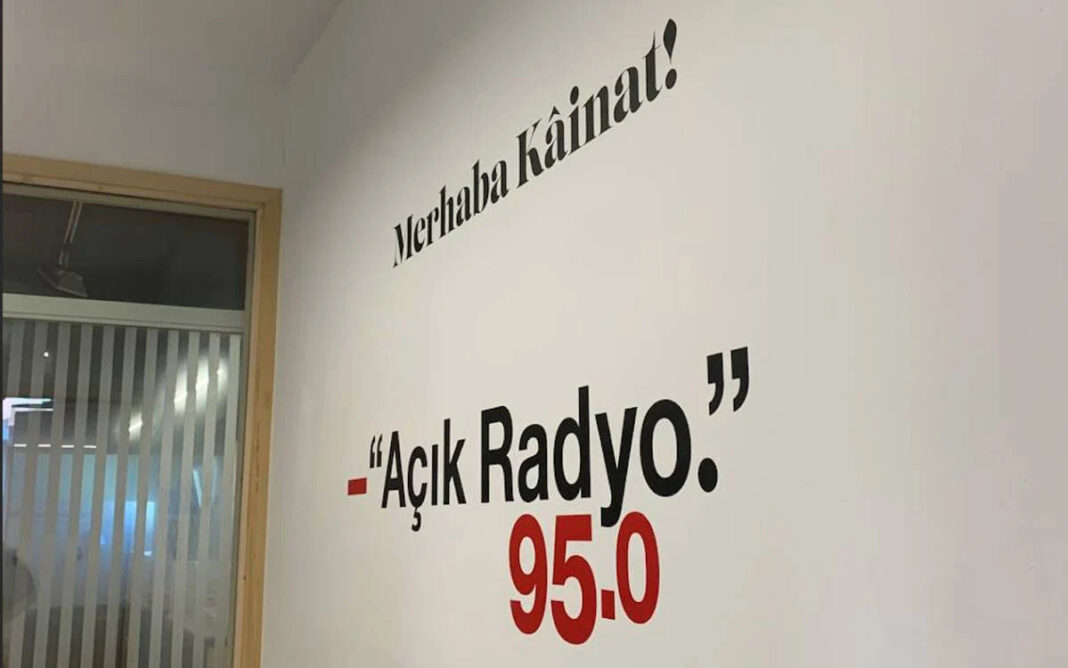Reporters Without Borders (RSF) has called on Turkish judicial authorities to overturn a decision by country’s broadcasting and streaming regulator to rescind independent radio station Açık Radyo’s license for failing to immediately comply with a broadcasting ban.
Radio and Television Supreme Council (RTÜK) member İlhan Taşçı announced on X last week that the RTÜK had cancelled the broadcasting license of Açık Radyo (Open Radio) due to a reference to “genocide” in the mass killing of Armenians in the final days of the Ottoman Empire.
The development has caused disappointment and anger among the radio station’s listeners as well as journalists and rights activists for being an act of “censorship.”
RSF Turkey representative Erol Önderoğlu said in a recent statement that RTÜK must stop obstructing the right to media pluralism.
According to Taşçı’s announcement on July 3, RTÜK revoked Açık Radyo’s license for “refusing to comply” with a five-day broadcasting suspension that RTÜK ordered on May 22 as punishment for hosting a guest who allegedly “incited hatred and hostility” by referring to the mass killings of Armenians as “genocide” during a broadcast on April 24, when the mass killings of Armenians are commemorated.
Armenians say — supported by historians and scholars — that 1.5 million of their people died in a genocide committed under the Ottoman Empire during World War I.
Turkey accepts that both Armenians and Turks died in huge numbers as Ottoman forces fought czarist Russia but vehemently denies a deliberate policy of genocide and notes that the term had not been legally defined at the time.
The radio station’s lawyers had filed an appeal with an Ankara administrative court asking it to quash the suspension order. But, without waiting for the court to issue its decision on the appeal, RTÜK rescinded the station’s license for non-compliance.
“It is shocking to see the eagerness with which a regulator – an entity that’s supposed to protect the Turkish broadcast media landscape and monitor respect for ethics – uses any opportunity to cancel the licence of an independent radio station, a symbol of diversity in Türkiye for nearly 30 years. We urge the RTÜK to end these discriminatory and repressive practices. The administrative court must also overturn this sanction and safeguard the radio station’s rights,” Önderoğlu said.
Açık Radyo, a regional radio station established in 1995, has been broadcasting from İstanbul since then and is praised for its quality content and diverse programs.
Meanwhile, a signature campaign has been launched in support of Açık Radyo and the reinstatement of its broadcasting license.
More than 500 people have signed it, including prominent rights activists, writers, journalists and opposition politicians.
The signatories described RTÜK’s revocation of Açık Radyo’s license as “unacceptable” and a violation of the freedom of expression guaranteed in the Turkish Constitution.
“We ask for the immediate reversal of this decision and prevention of further violation of the freedom of expression,” said the signatories in their letter.
It is common for pro-opposition or independent news stations in Turkey to face restrictions on their broadcasting through sanctions imposed by RTÜK, whose board members are appointed in proportion to the number of seats held by political parties in parliament, meaning that the ruling Justice and Development Party (AKP) currently dominates the agency.
After a failed coup in July 2016, the Turkish government summarily shut down nearly 200 media outlets due to their alleged links to terrorism or their alleged involvement in terrorist propaganda. The post-coup crackdown also included the detention of dozens of journalists, which briefly made Turkey the second worst jailer of journalists in the world after China.
Turkey, which has been suffering from a poor record of freedom of the press for years, ranks 158th among 180 countries in RSF’s World Press Freedom Index published on May 3 on the occasion of the World Press Freedom Day.


